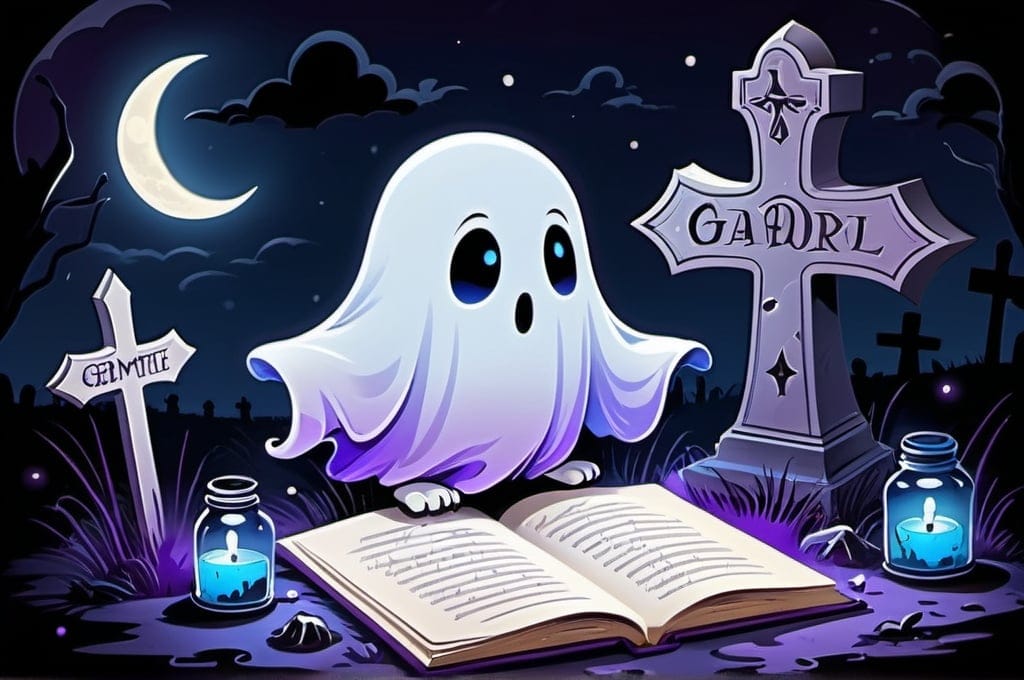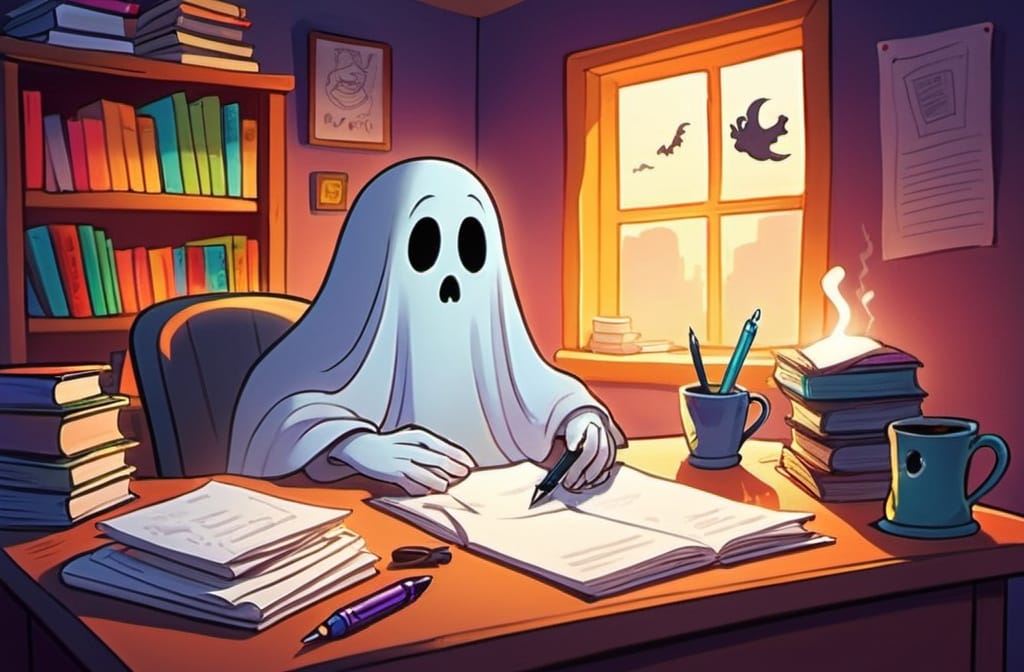On this page

How to Become an Author
—George Orwell
—Ernest Hemingway
Part I - Why would Anyone become a writer?
We live in, essentially, the best and the worst possible time to begin a writing career. There are more authors, self-published and otherwise, out in the world than ever before, and more people are competing for a reader’s time than you might have experienced even as few as five years ago. Today, anyone can load a book onto Amazon completely free and with very little work.
The results vary: some of those books are incredible and we wonder why publishers missed the opportunity, and other books are so terrible that they can barely be called books at all.
On the other hand, there are also more tools and resources to help a newcomer publish a book on their own than ever before. No longer does publishing a novel require an army of people and a strong network to happen, but now a single person with a computer can release professional content out into the world that is on par with what the largest publishing firms offer.
A quick google search will show you thousands of articles, blogs, resources, services, and other things on the Internet that offer to help you in your writing journey. I’m sure many authors from the last several decades would have loved to live in our modern age and be able to do everything on their own, and in many cases they certainly would have made more money.
The problem is figuring out which of these resources are worth checking into. After all, not all content is created equally, and the Internet is a morass of unpleasantness and anger that can suck you in and refuse to let you go. Figuring out how to navigate it can be a daunting task, and it starts right up front when you are trying to find the best software to write with.
Part II - Let's slow down a bit
Some of these author services are better than others, and there are quite a few people out there interested only in stealing your money rather than offering a legitimate service that can help you out. However, there are also quite a few who are willing to help you in any way they can and truly want to help you succeed. The problem is, such people generally look the same.
The biggest place that is difficult to navigate is the sudden influx of ‘courses’ to help people do something. Content is broken down and spread out, and often the author of such course-based content will charge a lot of money to divulge it. It usually comes with promises of ‘learn this secret’ or ‘the simple tool no author uses that would enhance their income by 1,000,000%!’
The thing is, that kind of stuff doesn’t exist. There is no easy solution to making a fortune as an author, and it is impossible to plan in advance for something like it. It all eventually comes back to hard work and luck.
Everything you do, every decision you make, needs to be carefully investigated and handled with discretion because it is incredibly easy to make mistakes and waste a lot of money.
I know this from personal experience, because I’ve spent a great deal of cash on a lot of things that turned out to be a complete waste of time and money. I didn’t know what I was doing and just kept trying new and different things with the idea that if I threw enough promotions at the wall, some of them would stick.
And, to a small extent, I was right. I managed to build up a decent following and learned a lot of really useful lessons about what does and doesn’t work by doing this. I’m the sort of person who likes to make mistakes for myself, and no matter how many times someone tells me something, I like to try it on my own.
However, if you’re the kind of person who doesn’t like to make your own mistakes and would rather learn something up front to avoid them, then you can learn from the things I did wrong and save yourself a lot of money and grief.
Here are some problems that self-published authors run into all the time that you can hopefully avoid in your own writing!
Part III - Inconsistency
I am easily distracted by new and shiny things, and I love to start projects and try out new styles of writing. I will start writing a book, make it about halfway, and then bail on it and start something else that is new and interesting. I love to start new projects, but I hate finishing them.
Example: I have started writing it dozens of times, and then I just put it off and forget about it for a while before finally coming back to it. It’s difficult for me to stay on task because I have an ‘ooh, shiny!’ personality.
I hate editing even more, which created another distraction and excuse for me to bounce from project to project. It always seemed like such a tremendous hassle trying to proofread my own books, and it took me a long time to build up the patience and dedication to actually focus on what I was working on.
Once I learned this lesson I was able to actually finish each project I started before moving on to something else. It is still a work in progress, and I often have a lot of things up in the air at the same time, but I’m getting better at it.
Part IV- Rushing
When I finish a project, I want to publish it. I’m proud of what I’ve written, and I want to push it out into the world so that other people can enjoy it as well.
When I first started writing, I spent a lot of time and energy working on projects, but when I launched them, they weren’t as professional as I would have liked because I was in a hurry to have them finished and out in the world.
I have since re-edited many of my earlier works, as well as reformatting and adding tweaks to make them look more professional, but I found out as I went that it was always better to take my time and get it right the first time. This ends up saving me a lot of heartache and grief later when I have to go back and clean them up.
Part V - Lacking Goals
This is basically the reverse of my previous mistake. I would never set goals for myself to attain on a daily basis, so it consistently took longer to actually write books than it should have, and then I wouldn’t have a clear strategy about how to publish them.
I found out that setting daily goals, and making them easily attainable and (more importantly) easily trackable makes a huge difference in what I manage to get accomplished day to day. I can write and publish books in a quarter the time it used to take me now that I have a system.
This is a really important point, because it can seem daunting trying to craft a book from scratch, but if you turn it into little pieces and just plug away at it slowly, you will be amazed at what you can accomplish.
Part VI - Book as your child
Negative feedback hurts.
It’s important to take everything in stride and always work on creating something else. Not everyone will love your project, and that is perfectly okay. Early on in my career (as my wife attests), negative feedback was really hard to deal with. I’m not alone, and I’ve spoken with countless other authors who also have a hard time ignoring the negative feedback.
It is caused by the headwinds/tailwinds of life and affects everything we do: it is easier for us to focus on the bad things that happen to us than the good, so a positive review can make my day, but a negative review can ruin my week.
Don’t take it personally, and just try to get past it. This is easier said than done, and it will be a constant struggle for many of us, but the sooner you can learn this lesson the better. It is also a lifelong struggle, however, and if you are able to apply it to other facets of your life and focus on the good things in your life, then everything will be better.
Part VII - Learn from my mistakes
It is important to have a system for how you do things from the beginning to the very end. You have to understand your process of creating a novel, from writing those first words to handling the first month of promotion. It might take you a long time to get there, but this should be your eventual goal.
I made a lot of mistakes early in my career, and I feel as though I’m only just now getting the hang of self-publishing. There was a lot of research to perform to find the best way of building up a career.
Part VIII - Why do YOU write?
This is a really important question to ask yourself. It will help frame the future of your career in its entirety, because there are some dramatic differences in ambitions and long-term aspirations at play here.
Are you writing just for yourself, or is this something you hope to turn into a career one day? Are you a hobbyist or a career writer?
This will frame literally everything that happens from this moment forward, including taxes, systems you use, process, and speed with which you need to accomplish things.
Part IX - Are you a hobbyist?
This is someone who enjoys writing, but isn’t ready to quit her/his day job and do this full time. With this aspiration, you can write whatever you want, publish whatever you want, and do as much or as little with your career as you want. You are, in a sense, your own boss and this is just something you do in your free time.
This is where most authors (especially self-published ones) will fall, and it is incredibly difficult to make it out of this bracket. And that is perfectly fine, because you can still have a lot of fun and make good money doing it. It is where I fall, and I do most of my writing for fun and because I want to. I wouldn’t want to be in a position where I had to sell books to survive, because then it stops being fun.
Many people start here before turning into a career writer later on, and a lot of such people lament that this was the most fun they had in their career. Being a full-time writer means the pressure is on to write salable content and make money just to survive.
Part X - Are you doing this professionally?
This is someone who writes to support herself and family, which means that there is a lot more pressure in doing things the right way and actually selling books. A misstep in publishing, or a delay in releasing new content, can cause serious problems that a hobbyist writer wouldn’t feel.
There is also less room for experimentation to try new things because the focus of this path is on making an income to support at the very least oneself. Often, career writers will be forced into one category or genre and have to release books fairly rapidly to keep up with demand.
I will warn you right now that if this is your goal, you might need to temper your expectations a little bit. This prospect takes a lot of hard work and dedication and still might never become a reality. People have quit their jobs and taken up writing full time only to find out that it is a difficult vocation to break into, and often they end up spending so much more time doing things they hate (editing, marketing, self-promotion) than actually writing that it becomes a worse venture than simply working a day job.
Not to mention that you will also have to handle your own taxes and bookkeeping. All in all, it can cause some serious heartache and headaches if this is the route you want to go right off the bat. You will probably need to work up to this as an indie.
Another thing to keep in mind is that the market fluctuates wildly and you might not always be as successful as you like or need to be. For example, you might make a lot of money one year and then almost nothing the next, so you should build up a nest egg for those dry spells.
Part XI - Which is better?
You don’t have to choose right away, and often people float between these two categories throughout their career, depending on how things go. You might start out as a hobbyist, get successful for a few years and write full time, and then gradually transition back to it being a hobby to make some added income to have fun with.
If you are only doing this for yourself as a hobbyist, then it isn’t something you have to take very seriously…but, on the other hand, you also shouldn’t expect tremendous and world-changing results. Lightning can strike even if you don’t invest, sure, but it’s much more likely that your book won’t sell a lot of copies.
There is nothing wrong with that. Just know what you are getting into before choosing which kind of author you want to be and starting down the path.
Part XII - How Fast Should You Write?
This is another big feature of becoming a writer, because it will affect how quickly you are able to release content and keep up with the demands of your (hopefully) ravenous readers.
If you are looking to be a hobbyist writer, then there is no real requirement here for what you have to accomplish. Stephen King has said multiple times that his pacing for writing was ten thousand words a day no matter what, which will be difficult for many people when they start.
There is no perfect release cadence, and everyone has their own opinion. Some authors recommend five to ten thousand words a day, some do fewer than five a week. It all depends on your speed, and there is nothing wrong with how you do it.
However, I would recommend that you try for consistency. Consistent but slow is better than fast with huge gaps in between.
Part XIII - What about you, though?
If you check online forums, you’re going to see many authors talking about writing thousands upon thousands of words per day, or some other astronomical number you are supposed to hit to be considered a serious ‘writer.’ In fact, some authors have written books about how to write many thousand words per hour and churn out new books at a rapid clip.
The idea behind this is that to maintain your fanbase, you need to pump out a new work every few weeks (or months at the latest) to keep them interested. Your release cycle needs to be constantly moving to deliver new stories so they don’t get bored and go elsewhere.
First off, I would say you should give readers more credit than that. If someone likes your book, then most likely they will read your next work whether you publish once a month or once a year. Some authors dump out books every few weeks, and maybe their quality doesn’t suffer, but it is by no means a requirement of being a serious writer.
Part XIV - How Many words per day?
Chris Fox recommends five thousand words an hour in one of his books, and his goal is to teach you how to achieve that. He is incredibly successful and does an amazing job of showing people how to write, but he is trying to teach people how to become full-time writers, not work on it as a part-time hobby.
For many people, this is going to be impossible because of real-life limitations. Eventually, you will become a better writer and be able to churn out more words per hour, but that takes a lot of practice and you shouldn’t feel bad if it never happens. Maybe you are too busy, or just had a child and are distracted, or too mentally drained to keep up a pace like that.
Set goals (like we talked about earlier), but don’t beat yourself up if you fall short. I would actually recommend setting time goals instead, because sometimes the words will come easily and you’ll knock out thousands per hour, and other times it will be like pulling teeth. Try to get the words down on paper, but don’t be afraid to fall short of some lofty goal.
Find your own speed where you can complete your books without sacrificing quality. You need to be proud of the final product, or else it’s all just a waste of time and energy.
Maybe your speed is a few hundred words a day, or maybe a new book each month. You can decide how you want to track your delivery, and feel free to try new things. Set goals for how much you’ll work toward your newest project each day and stick with them.
Maybe try a few different things before settling on what works for you, and don’t be afraid to mix it up. You could even try a time-spent-working-on-your-projects-per-day goal (a real mouthful). It doesn’t matter what sort of goal you want to set for your writing career, just set one.
The trick here is to be consistent. That is the best advice anyone ever gave me, because I had a hard time maintaining my interest in a particular story the longer I spent away from it. For me, it was important that I contributed a little bit each day, and adding a few hundred words was enough to make the story grow over time.
This is because even if you only do a few hundred words a day, if you are consistent with that goal, then over time that can really add up. You might not notice it, but before long you have a finished novel.
If, on the other hand, you set huge goals that are so daunting you can’t even start to work on them seriously, then you will simply flounder and get nothing accomplished.
Believe me, I know this from personal experience.
Part XV - Why Not Delivery Goals Instead?
This method is more lenient than word count, but it can also be difficult to keep track of. For example, if your goal is to write a book in a month, then you might have no issue getting that accomplished, but if you allow yourself to put off working on it, you might quickly run out of time and be incapable of finishing it.
That being said, it is perfectly viable as an option. Again, just make sure you are consistent and contribute daily to the project.
This one can help you focus on what you are trying to accomplish and build a set schedule for when you release new content, so for many people it is exactly what they need to help focus their career.
Part XVI - Software
This is a great place to go ahead and mention some ways in which people write and the software they use to make it a reality.
If you search the internet, you will find a lot of different software suites for writers to help make your life easier. They always have clever little ways of storing ideas, framing characters, storing details, and creating links between scenes, and some of these are pretty awesome.
I’ve used a few different software systems for putting together a book, and some of them are incredible, but it just isn’t for me. One problem is the expense of it all, and some of them even have an associated monthly fee. Another problem is document conversion, because even though many of them have some way to finalize your document into a final product when you are done, I don’t like passing too much control over to them for what my final product will be.
When I write my own works, I just create them in Word and use Excel for tracking my chapters, word counts, and everything else. The reason? For me, it’s just how I grew up and the system I started writing in, so making the change didn’t feel worthwhile. For me, Word is just the easiest thing to use and gives me the most control.
That being said, for the purpose of productivity and incrementalism, I am making a big mistake (potentially) because if those monthly programs actually were able to speed up my productivity or save me time, they could easily translate into added income or value.
But I just plain love Excel. I use it in my day job and am quite familiar with how powerful it is and how much control it gives me, and it is incredibly useful when I don’t have the time/energy to build a database to keep track of things. It has never let me down and keeps me sane, so I will continue using it until there is a clear and perfect alternative available.
This one might be worth looking into. It is, essentially, the king of writing software, and a lot of authors swear by it. I’ve done the free trial and played around with it, and I could see how powerful it was, it just wasn’t for me.
The simplest way to put a book together, this is my go-to strategy for writing books. It’s what I grew up with and used throughout high school and college (and graduate school), and so it makes the most sense for me.
I know that there are time-saving options out there, but for me it was never conducive to switch to something else because I feel comfortable putting my books together in Word. Plus, I know a lot of formatting and time-saving tricks that most people don’t know, so most of the ‘lifesavers’ other companies offer are more of a nuisance for me.
There are dozens of other software tools out there that can help you learn how to write faster, and it's really up to you.
Part XVII - Track yourself
What I do is create an Excel spreadsheet in a cloud software program (Google Drive, Dropbox, One Drive, etc.) and then hyperlink to it so I can easily access it throughout the day as I write. I use the cloud so that I can check it and update it from any device and don’t have to worry about losing my content if the computer crashes.
I’m actually doubly paranoid, and I keep copies of my documents on multiple cloud drives simultaneously in case one of them fails and crashes so I can fall back to another. Most of them are free and easy to set up, so I would rather spend a few minutes a month being extra prepared rather than run into a nightmare scenario.
Then, I build a tab with my Works in Progress along the top level and the current dates along the side so that I can input my daily word counts on each work in progress while counting up my daily total to make sure I am accomplishing what I set out to each day. Some days I get a few hundred words across multiple books, and other days I might get a few thousand on a single work. Either way, I work hard to make sure I am at least doing something.
This offers me a lot of advantages: I can use this to watch trends (like what days I like to work on which project or which days are my most productive in meeting or exceeding my daily goals) so I know about what I should be accomplishing each day. The cloud aspect of the tracking means that even if the file is deleted from my computer, I will still be able to find it later (unless the service I choose crashes, which is always possible!)
The point is, keep backups of everything! You never know when you might lose access to your files, so make sure they are stored somewhere else than just on your computer.
Part XVIII - Set your goal now.
Set yourself a word count goal. Grab some paper to jot it down, or just come up with something that fits you.
I’ll wait.
…
…
Done? Alright then, so now you have a goal to start out with. Feel free to change it up and try new things, but at the very least, force yourself to be super consistent with it.
Start off small if you want and gradually ramp up to a higher number of words to shoot for, but make sure you have a daily goal of some sort.
Important: Don’t worry about missing days here and there and getting nothing accomplished. Sometimes, I am too busy with real life or simply too tired or sick to actually get anything accomplished, and accidentally missing a day is no reason to give up or quit on your project. Don’t throw the baby out with the bathwater, and just get back at it!
Decide if you are going to allow yourself to work on multiple projects at a time or stick to only one, but make sure you keep track diligently. Tracking is key!
Part XIX - Maintenaince Tasks
What this is (tracking your word count daily) is a maintenance task. This is something you do for upkeep in your day-to-day writing life. Some days, it might honestly feel like you spend more time tracking your word count or doing maintenance tasks than actually writing, and that can be a little bit depressing.
But it is also perfectly normal, and in fact the more you chafe against performing maintenance tasks, the less you’ll get accomplished overall. I hear all the time authors talking about how much they hate performing daily maintenance (marketing, editing, tracking and timekeeping) and how much more productive they would be without them.
But that is a myth. Writing a new book is great, but doing your due diligence of tracking your writing career and monitoring everything is just as important. Sure, a lot of people won’t want to do this, and that is fine, but we live in the golden age of data collection and monitoring. If you make a habit of it, then after a while, you will start to know more about yourself than you ever thought you could.
Compare it to the government building roads and maintaining bridges: sure, it is great to build a new bridge or road, but it is also important to maintain them once they are built rather than allowing them to fall into disrepair. Innovation shouldn’t come at the cost of allowing everything else to fall apart.
Don’t chafe against doing your daily maintenance tasks, and just turn it into a habit or routine. Then, when you do actually spend time writing, you won’t have to wonder how well you are doing: you will know.






